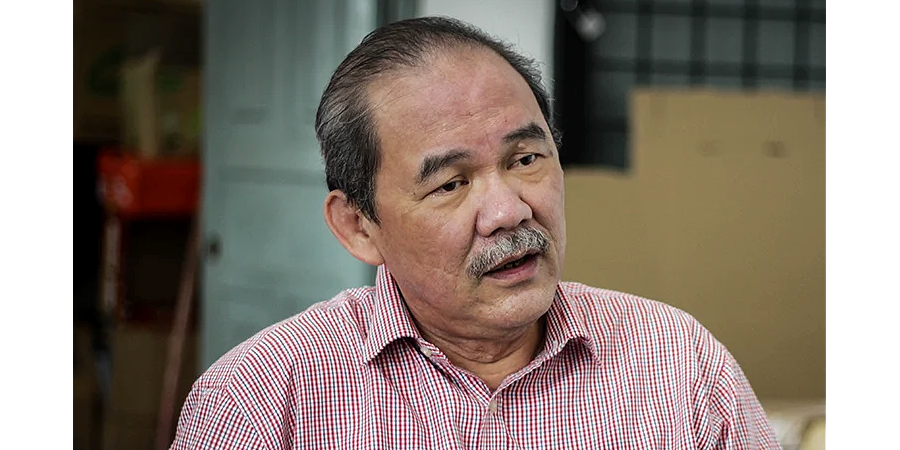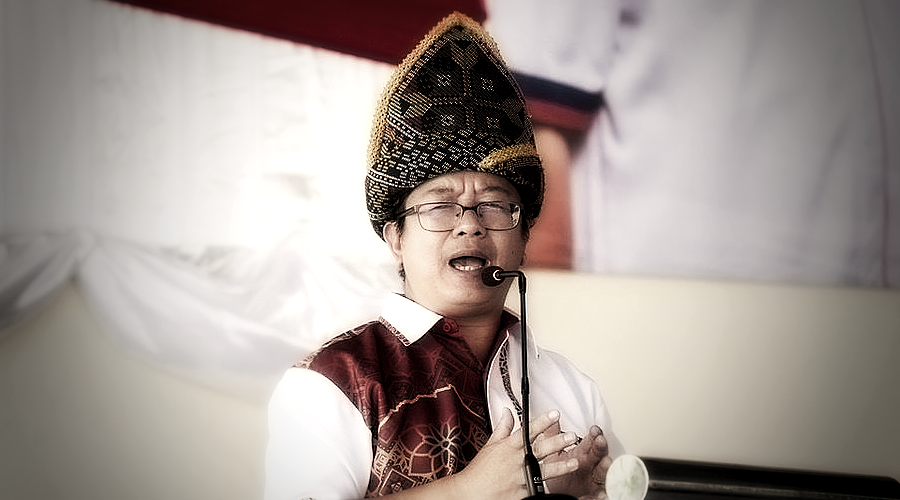
In this column today, I wish to discuss whether a minister who disagrees with certain policies of the government he is serving should step down as a matter of principle.
In a straight forward case and on a matter of principle, I would say ‘yes,’ as the title of this article suggests.
But it is also important to weigh other factors on such a major decision, as repercussions would surely be involved.
The story today is centered on the statement made by UPKO president Ewon Benedick at the Penampang UPKO Convention last Sunday.
Ewon told his party members that he had already informed members of the federal Cabinet of his view that the government should not file an appeal against the Kota Kinabalu High Court ruling on October 17 that the federal government had acted unlawfully by failing to honor Sabah’s 40 percent share of net federal revenue from the state for nearly five decades.
Ewon, who is the entrepreneur development and cooperatives minister, also said that he would formally convey this view at the upcoming Cabinet meeting so that it is recorded in the proceedings. This is the correct step to take.
At the conclusion of its convention, the Penampang UPKO has urged their party president to resign from the federal Cabinet if the Attorney-General’s Chambers (AGC) files an appeal against the October 17 ruling.
In resolving to support the Kota Kinabalu High Court’s judgment, the convention also adopted a resolution urging Putrajaya to comply with the court’s decision and to reach an agreement within 180 days regarding the payment of the 40 percent revenue share.
In an immediate reaction, PKR lawmaker Hassan Karim said such tactics were unprecedented and amounted to “political ransom.”
The Pasir Gudang MP also said that Ewon Benedick need not resign from his Cabinet post should the federal government appeal against the court ruling in favor of Sabah.
Let me say this as a matter of fact. I don’t expect politicians from Malaya, be they legislators from either side of the political divide or ordinary members of Malayan-based parties to be happy with any court ruling favoring the Borneo territories of Sabah or Sarawak.
Hence, the criticism from Hassan Karim was not a surprise. I would also describe his “political ransom” remark as most unfriendly and unwarranted against a minister as both men are serving the same Madani government.
The UPKO president has the right to resign as minister on principle, and no one should stop him from doing so.
This Malayan sentiment is perhaps rooted in a deep-seated fear of losing control over valuable resources or facing potential challenges to their authority.
Politicians from Malaya may view any court ruling favoring Sabah or Sarawak as a threat to their dominance and power within the Malaysian government.
Ultimately, the issue highlights the complex and delicate balance of power within the Malaysian government and the challenges of addressing the diverse needs and interests of the Borneo territories.
The call from the Penampang UPKO for their party chief to step down as minister is not made without careful thought or basis.
I think their message to Putrajaya is clear: It’s time to pay serious attention to what Sabahans want and to return to them what was promised.
This is possibly the strongest message yet from a Sabah leader since the Madani government was formed in November 2022.
As a Sarawakian, I share the sentiments of my fellow Borneans in Sabah.
I’m glad that UPKO has made their stand clear on the court ruling and the determination and courage of UPKO leaders is noted with admiration.
While I support UPKO’s stand on the issue, I’m also aware that there is no absolute rule that a minister must always resign when they disagree with certain policies of the government.
However, strong reasons favor resignation when the policy violates core principles, the law, human rights, or the minister’s ethical obligations, and when continued participation would make them complicit in serious wrongdoing or deception.
Conversely, if the disagreement is about strategy or implementation and the minister can realistically shape better outcomes from within, staying—while continuing to press for change—may be the more responsible course.
On this course of action, I believe Ewon Benedick and UPKO have seen it all and been through it all with Malayan leaders to understand that better outcomes for staying within might be a long time coming or never at all.
UPKO secretary-general Nelson Angang probably says it best when he opined that resignation is the honorable course of action for ministers who cannot support a government decision on grounds of principle.
“Being true to one’s principles and political convictions is paramount. How can a minister continue to serve in a Cabinet if the decisions it makes contradict the very causes they have long championed?
“Ewon Benedick’s commitment to the implementation of the Malaysia Agreement 1963 and Sabah’s 40 percent revenue entitlement is well-documented and widely known,” Nelson said.
And a final word from me—UPKO president Ewon Benedick has the right to resign as minister on principle, and no one should stop him from doing so.

(Francis Paul Siah is a veteran Sarawak editor and currently heads the Movement for Change, Sarawak (MoCS). He can be reached at [email protected].)
ADVERTISEMENT
ADVERTISEMENT








































